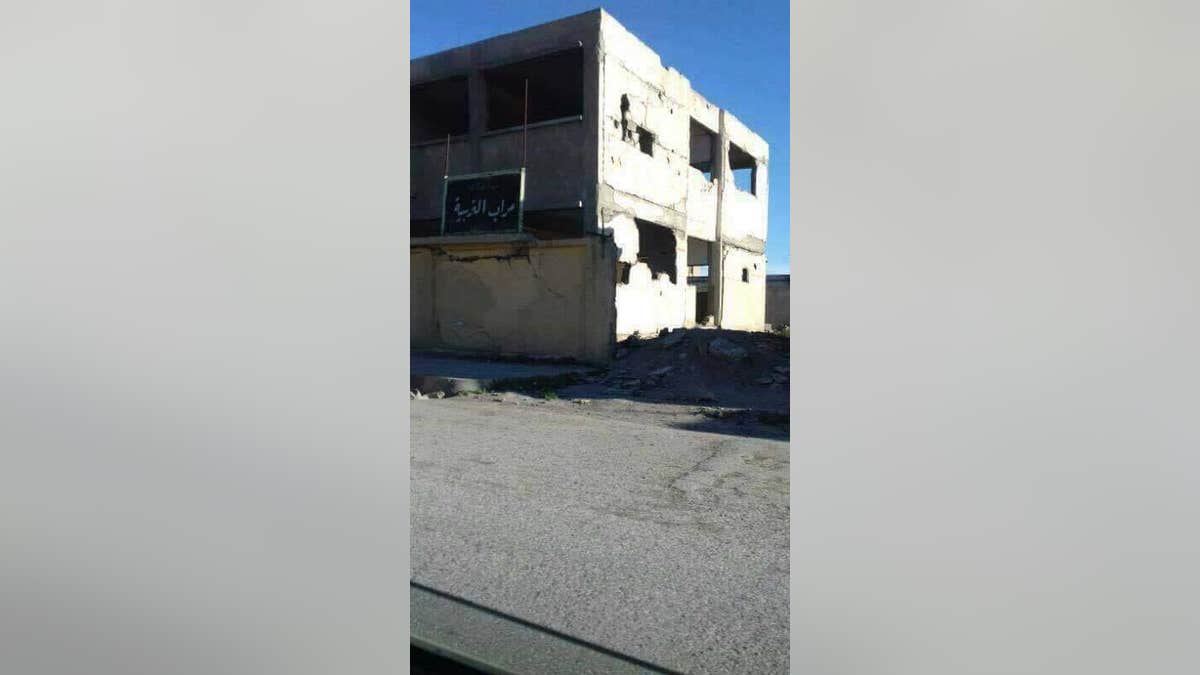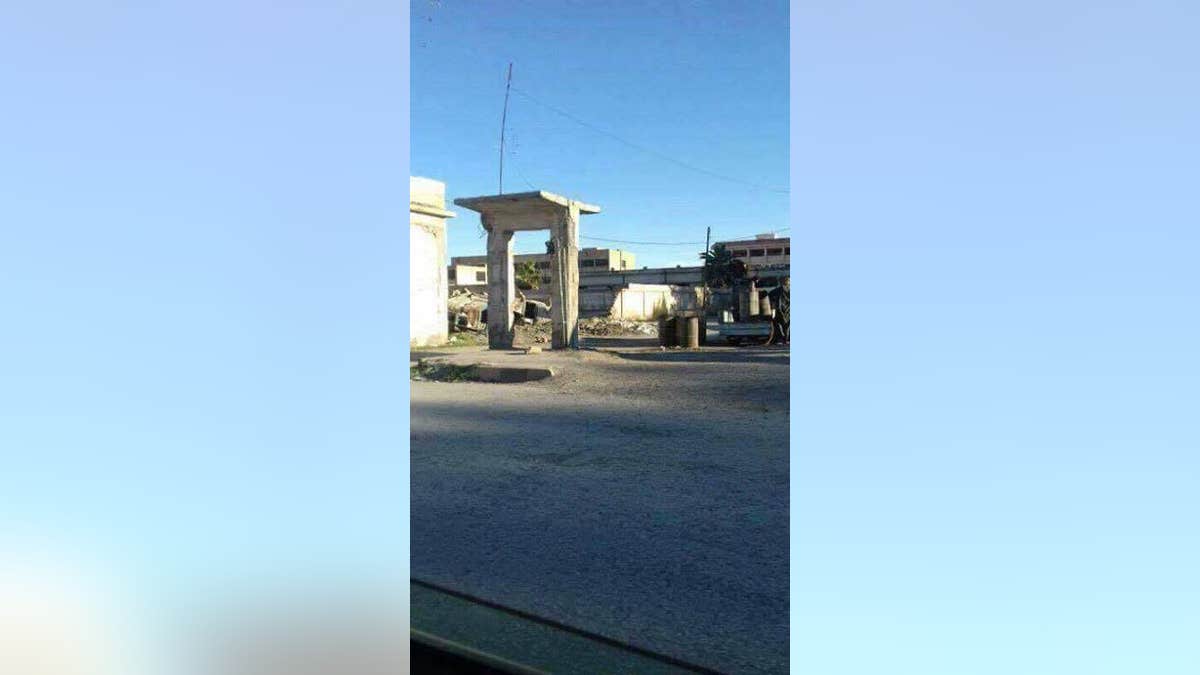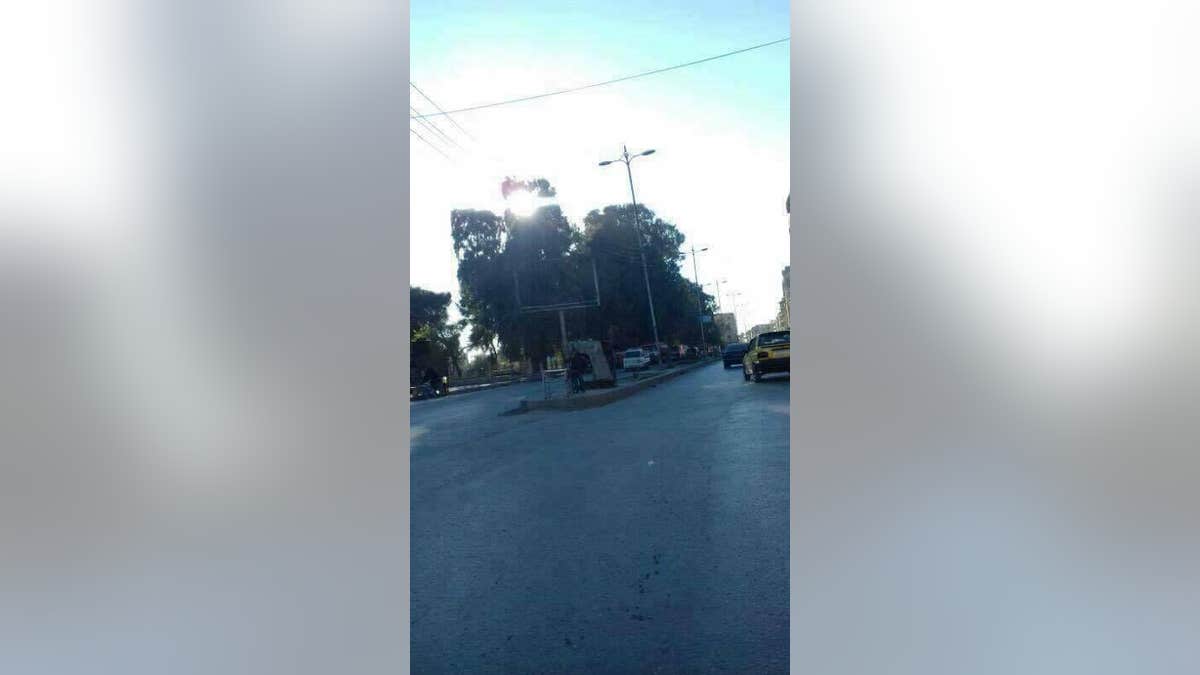
Life inside the ISIS capital of Raqqa, Syria. (Special to FoxNews.com)
To be trapped inside the Syrian city of Raqqa four years since ISIS swarmed in and declared it the “caliphate capital,” is to be cut off from every principle designed to protect human existence. Inside, one resident explains, the pariah city is nothing short of a fast-deteriorating, hellish place.
“Here, there is no life. We suffer from everything. There are no services, no hospitals,” one 27-year-old, who can only be referred to as Saleh for safety purposes, told Fox News. “And every day, ISIS is arresting more civilians to push them into joining their group.”
In its early days and dripping with black-market oil money, ISIS mobilized the city by offering a fully operational government and provided all the needed goods and services. But as time has ticked on and coalition bombs rained on the jihadist group’s parade, they have lost fighters, friends and finances.
The buildings of Raqqa are now rundown and guttered with mortar holes. The streets are dirty and crumbling. Occasionally, a fully veiled woman may be seen wandering the streets, almost always in the company of a male. Toddler girls, too, are often shrouded with a head covering when in public.

Life inside the ISIS capital of Raqqa, Syria. (Special to FoxNews.com)
But mostly, locals are increasingly afraid to step outside their homes and into the ISIS wrath. The streets are ghostly quiet, except for those pockets in which the displaced have resorted to living in tents sprawled across the streets. Saleh estimates that with the influx of newcomers from other strongholds like Mosul, the city’s population still hovers around its pre-ISIS invasion number of about 200,000. Yet, there is no way of knowing exactly how many have died, and no way of knowing who is a member of ISIS and who is not.
“ISIS forces us to wear the same clothes as them, and forces us to grow a beard like them,” Saleh said, pointing out a technique that the terror army uses to disguise itself among civilians to avoid being targeted in an airstrike.

Quiet streets inside the ISIS capital of Raqqa, Syria. (Special to FoxNews.com)
In what seems like a former life, Saleh was once a school teacher who was “able to teach boys and girls together” and lived a life doing pretty much whatever he wanted to do. But with the incursion of ISIS, came twisted and draconian Islamic laws heralding strict gender segregation, religious-only education and a life governed by oppression and fear.
“I have three children and they were in school and my wife was also a teacher,” he reminisced. “But there is no schools like before. Now I am working with my brother-in-law repairing cars, and when there is no work I just stay at home.”
Now, the focus is not on living – but on staying alive. And for many, it feels as though the whole world is against them.
“The city has been destroyed by a lot of hands. Some of them by warplanes from Syrian regime and Russia, the coalition, and of course the biggest problem is ISIS,” Saleh lamented. “But the airstrikes of the last three months didn’t care about our lives. Most people left in Raqqa are civilians, and when your warplanes target us, people are encouraged to join ISIS.”
DOUBLE THREAT? ISIS AND AL QAEDA ARE IN TALKS TO JOIN FORCES, IRAQ'S VP SAYS
He stressed that while they certainly don’t want ISIS and they want ISIS to end, they don’t want to then have to live under a different occupation with a different name.
‘We worry about the [Syrian Democratic Forces, or SDF] taking control, and saying that every Arab civilian is ISIS. We hope that the coalition will let us lead our city and let the Free Syrian Army come to help us,” Saleh explained, referencing the opposition group aided by the U.S to combat the Syrian regime in the beginning months of the country’s civil war.
Scores of Raqqa residents are deeply concerned about retaliation from the SDF, the multi-ethnic, although predominantly Kurdish Syrian ground troops tasked and supported by the U.S to liberate the city. Nonetheless, the SDF has proven to be among the most effective fighting force in the war, and vows not to commit human rights violations.
Several SDF soldiers told Fox News that they expect the liberation of Raqqa to be complete sometime in the next three months to a year from now. They have taken up positions north, east and west of the city and face heavy resistance from the black-clad jihadist outfit as they surge forward. Meanwhile, coalition airplanes have continued their strikes – taking out more than a dozen bridges across the Euphrates that served as key transport routes.
With the city surrounded and its bridges demolished, there has been a dire shortage of food and other crucial supplies.
“There are no goods coming to the city, people are using food that is already there,” explained Hussam Essa, public relations manager of the activist group, Raqqa is Being Slaughtered Silently (RSS).
Saleh concurred that while there still is a “little food,” the prices continue to skyrocket.
“We have some water and electricity – but only for two hours a day – and ISIS still takes the taxes,” he continued. “Unfortunately, my family and I stay because we have no choice.”
Indeed, there has been next to no opportunity for anyone to flee in recent months. A small smuggling ring used to operate, mostly by ISIS members seeking to make an extra few hundred dollars, but it is now deemed too expensive for the cash-strapped populace. And even so, there are few safe places for the escapees to flee to – the land outside is littered by landmines and filled with heavy fighting by an array of factions amid Syria’s more than six-year civil war.
Almost one year ago, Fox News spoke to a Raqqa resident who had just fled a tortuous ISIS prison amid the chaos of a U.S-led coalition airstrike on the facility. He was hiding near the Turkish border, trying to get permission to cross into safer terrain. Today, the young man is still languishing at the border, still waiting for permission to cross.
Most people, however, aren’t even trying to leave. Essa said it is simply too dangerous to even entertain the idea of escaping the iron-clad caliphate and fighters there are going above and beyond to ensure nobody can exit.
And while brutal public executions were once the hallmark of the terror group’s reign – that too has slowed.
“There are not a lot of executions anymore,” Essa observed, adding that when they do happen it is usually in response to charges of secretly working with “enemy” forces, including the coalition, SDF or FSA.
Saleh noted that just a few days ago, he watched on as ISIS operatives dragged four dead bodies through the streets, claiming that those killed were collaborating with the SDF.
“I am afraid not only for me, but for my family,” he said. “They are still arresting people and throwing them into the jails.”
And yet, Saleh said he is not sure the worst is over.
“ISIS is not only here, ISIS is everywhere,” he cautioned. “So if America really wants to defeat them, they need to defeat the idea.”








































